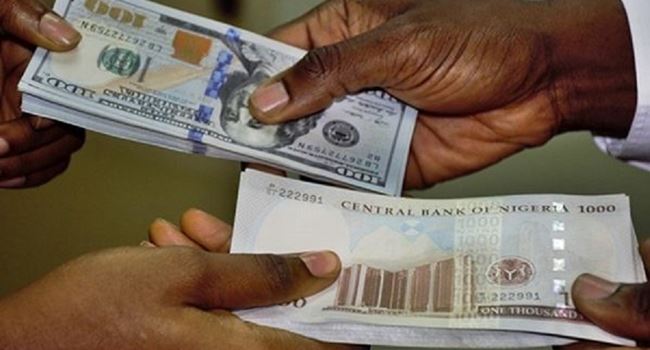On Tuesday, the official exchange rate between the naira and the dollar dropped to 869.91/$1, signifying a loss of N60.89 or a 6.99% decline in the local currency compared to its closing rate of N809.02 on the previous Monday.
This marks the second time the naira has depreciated since the Central Bank of Nigeria commenced clearing some of its foreign exchange backlog the previous week. During the trading session, the naira’s performance witnessed an intraday high of N1100/$1 and a low of N700.00/$1, leading to a substantial spread of N400/$1.
Data obtained from the official NAFEM window reveals that the forex turnover at the close of trading amounted to $70.92 million, marking a 19.08% decrease compared to the preceding day.
However, in the unofficial black market, the exchange rate was appreciated, with the naira quoted at N1050/$1, while peer-to-peer traders quoted around N1062.10/$1. It’s worth noting that the official intra-day high rates are increasingly converging with the black market rates.
The recent development aligns with efforts to address the backlog of foreign exchange forward contracts by the Central Bank of Nigeria (CBN). This move is expected to relieve the naira, the business community, and the broader economy.
Chronic dollar shortages have plagued the country since foreign investors withdrew from local assets during low oil prices. The return of investors has been slow, and the central bank has struggled to meet the demand for dollars from foreign investors seeking to repatriate funds or airlines seeking to transfer money from ticket sales abroad.
The central bank’s actions follow the October 23 announcement by Wale Edun, the finance minister, regarding Nigeria’s anticipation of $10 billion in inflows to enhance FX market liquidity. This development is welcomed by local lenders that have faced challenges in meeting customer demands due to chronic dollar shortages in Africa’s largest economy.
Toye Folosho, a director at the Manufacturers Association of Nigeria, emphasized that CBN’s clearing of the backlog is a positive move for the manufacturing sector, allowing manufacturers to procure raw materials and machinery.
Gabriel Idahosa, deputy president of the Lagos Chamber of Commerce and Industry, emphasized that the central bank’s actions restore confidence in the traditional market, bring back portfolio investors and international airlines, and encourage foreign direct investments.


